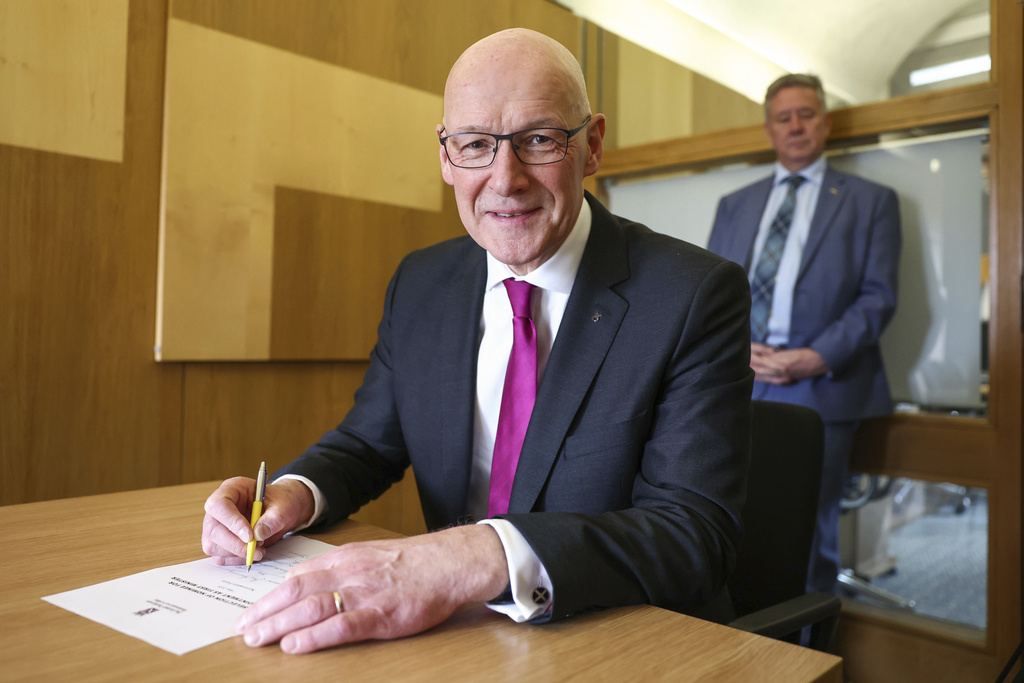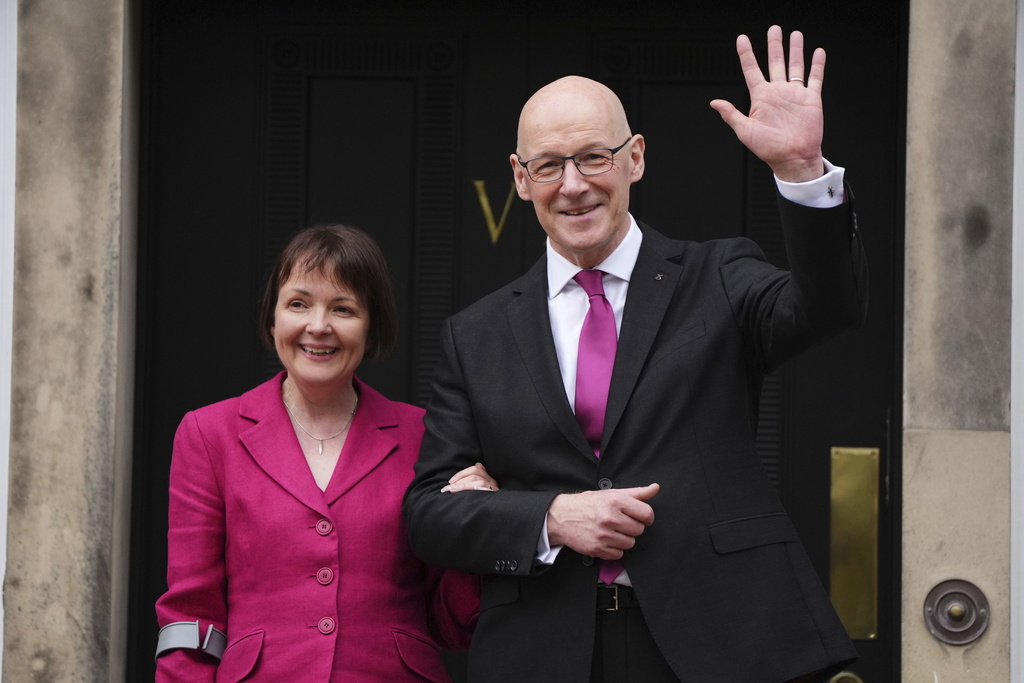
LONDON - Scottish lawmakers on Tuesday voted for Scottish National Party (SNP) leader John Swinney to become Scotland's first minister, replacing Humza Yousaf who formally stepped down earlier the same day.
Swinney won 64 votes, guaranteeing him the required majority due to seven abstentions from the Scottish Green Party.
He will be formally sworn in on Wednesday.
Scottish National Party (SNP) leader John Swinney inherits a minority government in the 129-seat Scottish parliament. He will need the support of lawmakers affiliated with other parties to pass legislation
Swinney, 60, became the leader of the ruling SNP on Monday. As an SNP veteran, he had already led the pro-independence party from 2000 to 2004.
ALSO READ: Scotland's leader faces knife-edge no-confidence vote after collapsing coalition
He said it's an "extraordinary privilege" to become first minister and his principal policy would be to "eradicate child poverty".
Swinney inherits a minority government in the 129-seat Scottish parliament. He will need the support of lawmakers affiliated with other parties to pass legislation.

His predecessor Yousaf announced his resignation last week after losing the support of the Scottish Green Party, for ending the power-sharing deal between the two parties which allowed the SNP to rule as the majority in the parliament.
READ MORE: Scotland's Humza Yousaf resigns as country's leader
The SNP and the Scottish Greens ended their alliance amid tensions over issues including the government ditching its target to cut carbon emissions by 75 percent by 2030.


